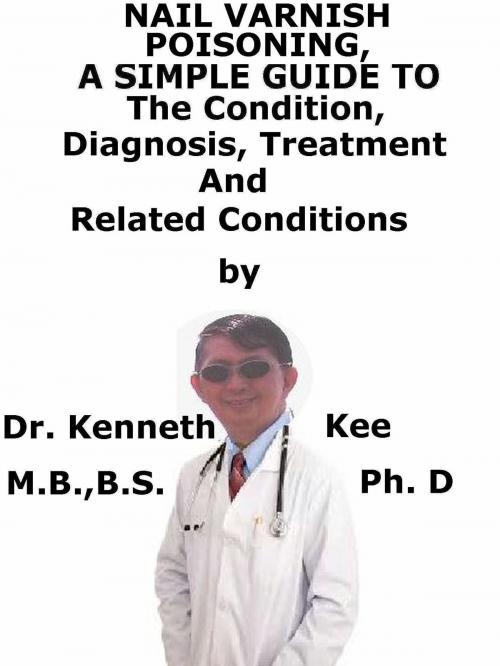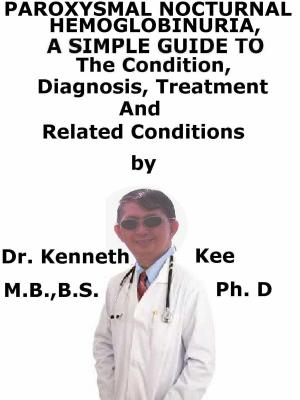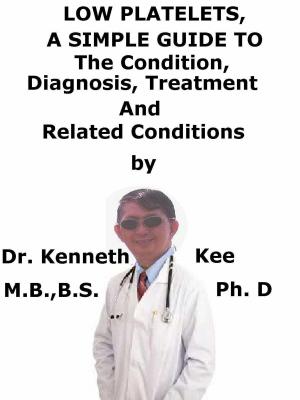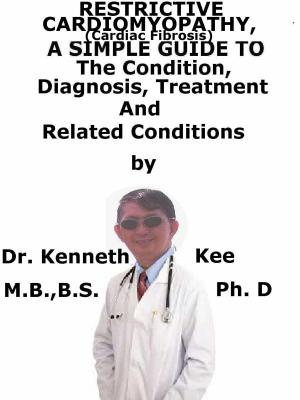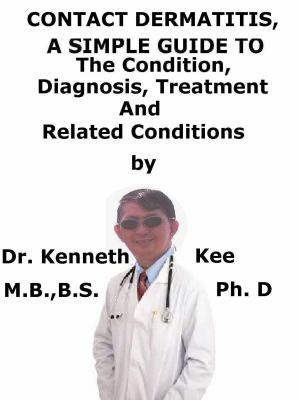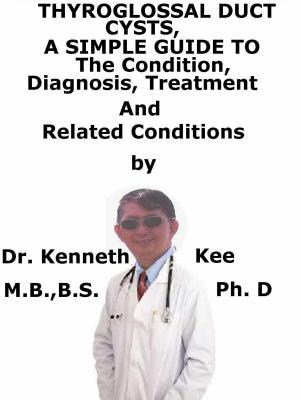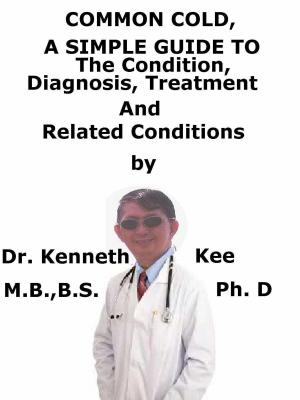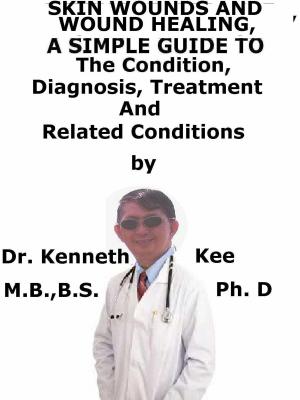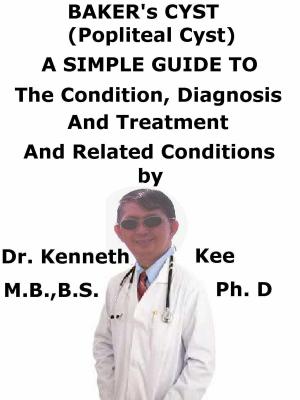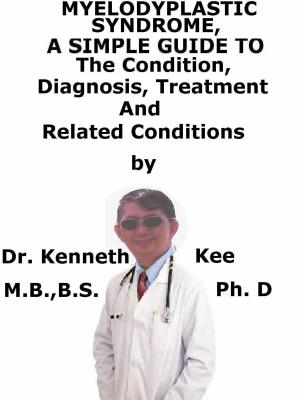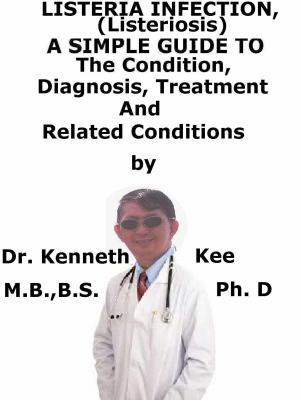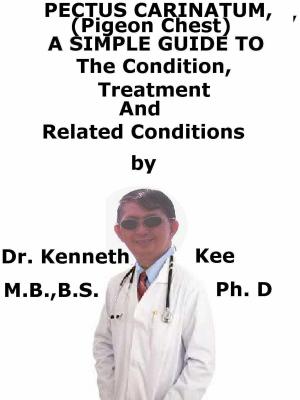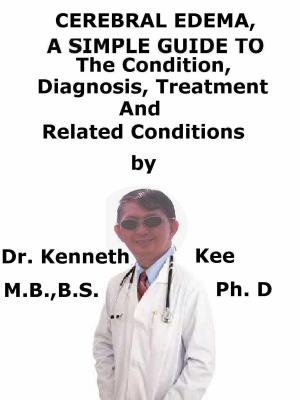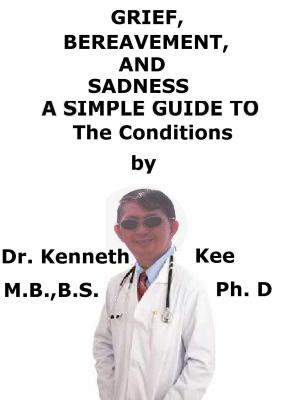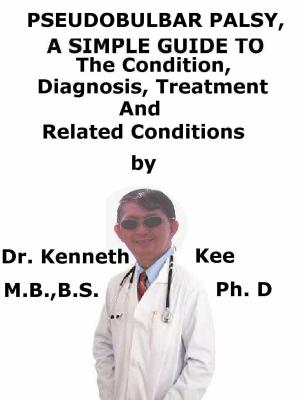Nail Varnish Poisoning, A Simple Guide To The Condition, Diagnosis, Treatment And Related Conditions
Nonfiction, Health & Well Being, Medical, Specialties, Toxicology| Author: | Kenneth Kee | ISBN: | 9781370651924 |
| Publisher: | Kenneth Kee | Publication: | March 26, 2018 |
| Imprint: | Smashwords Edition | Language: | English |
| Author: | Kenneth Kee |
| ISBN: | 9781370651924 |
| Publisher: | Kenneth Kee |
| Publication: | March 26, 2018 |
| Imprint: | Smashwords Edition |
| Language: | English |
This book describes Nail Varnish Poisoning, Diagnosis and Treatment and Related Diseases
Nail polish is a cosmetic chemical used to beautify and occasionally protect one’s nails.
They appear in a range of colors and shades and are a complicated mixture of chemicals
Causes:
Nail Polish Poisoning is the accidental or purposeful ingestion of nail polish.
The intake may be through inhalation, skin or eye contact, or after ingestion of the chemical
Poisonous Ingredients
Nail Varnish comprises both resins and solvents.
The harmful chemicals in the resins are:
-
Amber
-
Balsam
-
Rosin
The harmful chemicals in the solvents are:
1 Nail varnish -
Butyl acetate
-
Ethyl acetate
-
Dibutyl phthalate
-
Camphor
Most nail varnishes have these chemicals although some now use non-toxic herbal ingredients.
Symptoms
The signs and symptoms of Nail Polish Poisoning can range from one person to another.
It may be mild in some and serious in others.
Many systems of the body, such as the digestive system, respiratory system, vascular system, nervous system, and urinary system may be involved
The signs and symptoms of Nail Polish Poisoning are: -
Breathing problems, which may be serious if the varnish is inhaled
-
Chest pain
-
Headache
-
Nausea, vomiting
-
Stomach and abdominal pain
-
Eye irritation and pain on contact with the substance
-
Urination difficulties
-
Irregular heart-rate
-
Feeling dizzy or drowsy
-
Over-excitement; acting ‘drunk’
-
Lack of coordinated movements, walking difficulties, unable to stand
-
Confusions and hallucinations
-
Seizures
-
Shock and unconsciousness
Diagnosis:
The disorder is diagnosed based upon the medical history, combination of signs and symptoms, and more tests
ECG to look for abnormal heart rhythms
Bronchoscopy and chest x-ray to check the lungs
Gastroscopy to check for ulcers in esophagus and stomach
Treatment
Home Care
If the nail varnish is present on the skin or in the eyes, the patient must flush with lots of water for at least 15 minutes.
If the persons swallowed the nail varnish, they should be given water or milk right away, unless a doctor tells them not to.
They should not drink anything if they have symptoms that make it difficult to swallow:
These symptoms are vomiting, convulsions, or a reduced level of alertness.
If the persons took in nail varnish fumes, they should be moved to fresh air right away.
Carefully remove the patient from the exposure area
The airways should be protected (wear mask); make sure of breathing and the presence of pulse
If involvement of the eye has happened, the person should then wash thoroughly with copious amounts of water (for at least 15 minutes)
Unless instructed by a doctor, there should no induction of vomiting in the affected patient
The patient should be taken to emergency room (ER) for further treatment
Always try to bring the varnish bottle/container to the ER
The emergency medical doctor might do these steps towards treating the disorder: -
Medically treat symptoms, such as abnormal heart rate and seizures
-
Provide breathing support, if necessary
-
Gastric lavage for removal of the substance from the stomach (irrigation using special solutions)
-
Wash eyes repeatedly and completely (irrigation), to remove any remaining hazardous compound
-
After this, a suitable skin or eye ointment may be applied to treat the exposure
-
Surgical treatment for skin burns such as removal of burnt skin
-
Fluids are given by an intravenous drip line
The doctor will evaluate and monitor the person's vital signs, including temperature, pulse, breathing rate, and blood pressure
Medicines are given to treat symptoms
TABLE OF CONTENT
Introduction
Chapter 1 Nail Varnish Poisoning
Chapter 2 Causes
Chapter 3 Symptoms
Chapter 4 Diagnosis
Chapter 5 Treatment
Chapter 6 Prognosis
Chapter 7 Wilson Disease
Chapter 8 Aluminum Toxicity
Epilogue
This book describes Nail Varnish Poisoning, Diagnosis and Treatment and Related Diseases
Nail polish is a cosmetic chemical used to beautify and occasionally protect one’s nails.
They appear in a range of colors and shades and are a complicated mixture of chemicals
Causes:
Nail Polish Poisoning is the accidental or purposeful ingestion of nail polish.
The intake may be through inhalation, skin or eye contact, or after ingestion of the chemical
Poisonous Ingredients
Nail Varnish comprises both resins and solvents.
The harmful chemicals in the resins are:
-
Amber
-
Balsam
-
Rosin
The harmful chemicals in the solvents are:
1 Nail varnish -
Butyl acetate
-
Ethyl acetate
-
Dibutyl phthalate
-
Camphor
Most nail varnishes have these chemicals although some now use non-toxic herbal ingredients.
Symptoms
The signs and symptoms of Nail Polish Poisoning can range from one person to another.
It may be mild in some and serious in others.
Many systems of the body, such as the digestive system, respiratory system, vascular system, nervous system, and urinary system may be involved
The signs and symptoms of Nail Polish Poisoning are: -
Breathing problems, which may be serious if the varnish is inhaled
-
Chest pain
-
Headache
-
Nausea, vomiting
-
Stomach and abdominal pain
-
Eye irritation and pain on contact with the substance
-
Urination difficulties
-
Irregular heart-rate
-
Feeling dizzy or drowsy
-
Over-excitement; acting ‘drunk’
-
Lack of coordinated movements, walking difficulties, unable to stand
-
Confusions and hallucinations
-
Seizures
-
Shock and unconsciousness
Diagnosis:
The disorder is diagnosed based upon the medical history, combination of signs and symptoms, and more tests
ECG to look for abnormal heart rhythms
Bronchoscopy and chest x-ray to check the lungs
Gastroscopy to check for ulcers in esophagus and stomach
Treatment
Home Care
If the nail varnish is present on the skin or in the eyes, the patient must flush with lots of water for at least 15 minutes.
If the persons swallowed the nail varnish, they should be given water or milk right away, unless a doctor tells them not to.
They should not drink anything if they have symptoms that make it difficult to swallow:
These symptoms are vomiting, convulsions, or a reduced level of alertness.
If the persons took in nail varnish fumes, they should be moved to fresh air right away.
Carefully remove the patient from the exposure area
The airways should be protected (wear mask); make sure of breathing and the presence of pulse
If involvement of the eye has happened, the person should then wash thoroughly with copious amounts of water (for at least 15 minutes)
Unless instructed by a doctor, there should no induction of vomiting in the affected patient
The patient should be taken to emergency room (ER) for further treatment
Always try to bring the varnish bottle/container to the ER
The emergency medical doctor might do these steps towards treating the disorder: -
Medically treat symptoms, such as abnormal heart rate and seizures
-
Provide breathing support, if necessary
-
Gastric lavage for removal of the substance from the stomach (irrigation using special solutions)
-
Wash eyes repeatedly and completely (irrigation), to remove any remaining hazardous compound
-
After this, a suitable skin or eye ointment may be applied to treat the exposure
-
Surgical treatment for skin burns such as removal of burnt skin
-
Fluids are given by an intravenous drip line
The doctor will evaluate and monitor the person's vital signs, including temperature, pulse, breathing rate, and blood pressure
Medicines are given to treat symptoms
TABLE OF CONTENT
Introduction
Chapter 1 Nail Varnish Poisoning
Chapter 2 Causes
Chapter 3 Symptoms
Chapter 4 Diagnosis
Chapter 5 Treatment
Chapter 6 Prognosis
Chapter 7 Wilson Disease
Chapter 8 Aluminum Toxicity
Epilogue
